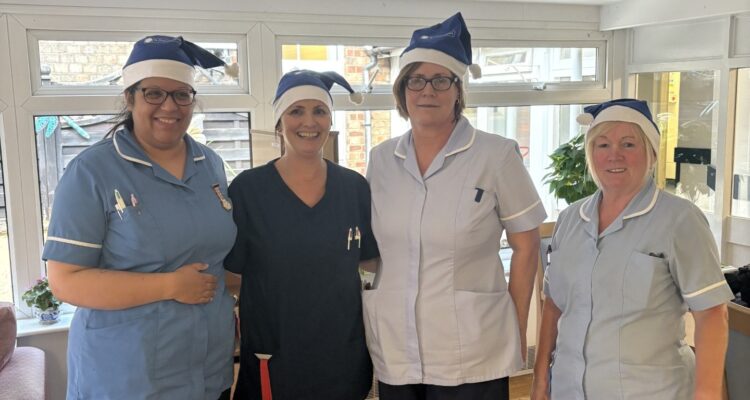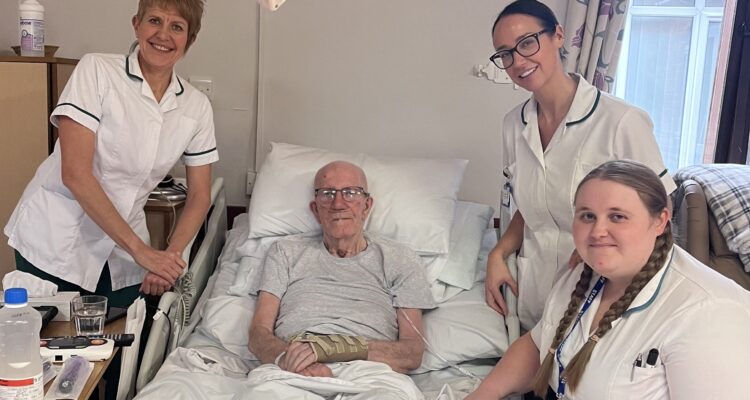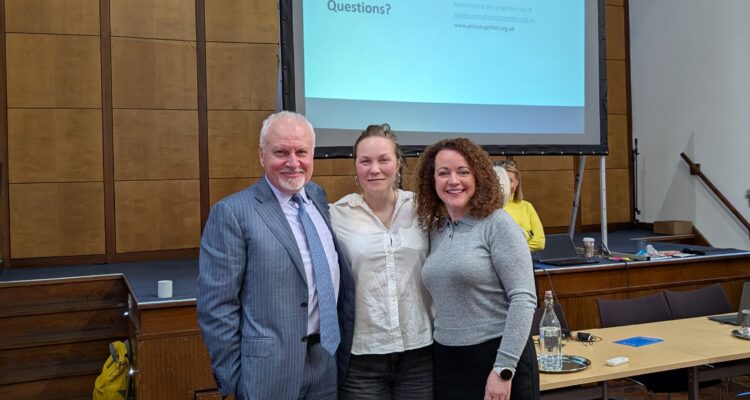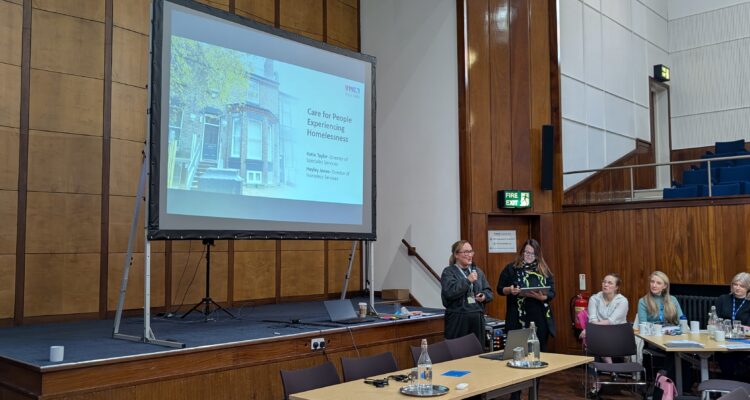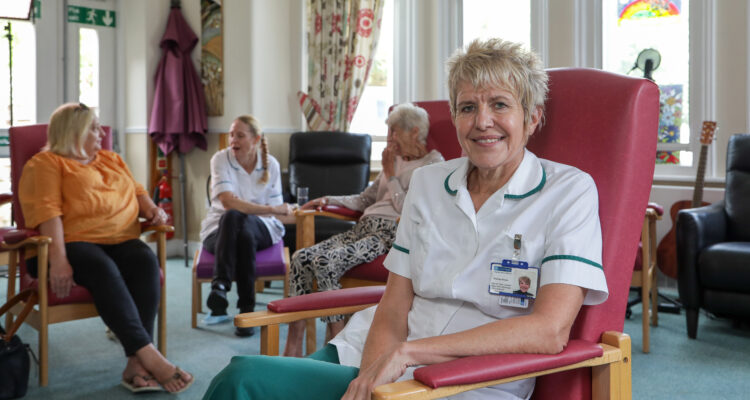
Megan Willington and Bobby Magee
St Ann’s are celebrating National Apprenticeship Week 2025 by shining a spotlight on two staff members undertaking apprenticeships at the hospice.
National Apprenticeship Week highlights how apprenticeships are an excellent option to consider for young people wishing to start a career, for employees looking to progress in their current role or retrain for a new career, or for employers needing to fill skills gaps to help grow their business.
Megan Willington is undertaking Assistant Practitioner (health), Level: 5 with St Ann’s and is one year in, describing it as such a “positive experience so far”.
Megan works at the hospice in the rehab team four days a week and attends Bolton University once a week as part of a two-year course.
“Having previously graduated in 2022 with a sports therapy degree, I feel it really lacked the hands on, job specific work that sets you up for working with patients in the real world who present with disease and illness,” Megan said.
Being an apprentice has the benefit of having a good balance of both on and off the job training. I am able to transfer the knowledge, skills and behaviours learnt at university to my everyday work in the hospice.
Megan Willington, Trainee Rehabilitation Assistant Practitioner
“I think it’s great to be able to have the opportunity to learn whilst on the job. Alongside my work at the hospice I also have to balance my university assignments and signing off competencies which can be challenging at times but we are given lots of opportunities following lectures to be able to work on assignments and more often than not I can put time aside with my mentor to look at competencies,” Megan said.
Megan said an interesting thing about her course is being able to hear the experiences of people from all backgrounds working in the different aspects of healthcare.
“I have had a very positive first year on my apprenticeship and I’m very pleased with the progress I have made. I look forward to my second year in my role and I am excited to continue progressing and developing during my time here,” Megan said.
Bobby Magee is undertaking Advanced Clinical Practitioner (integrated degree), Level 7, it is a two-year Master’s level apprenticeship in Trainee Advanced Clinical Practice at Manchester Metropolitan University.
“This combines University learning and practical experience within the Hospice setting allowing me to apply theoretical knowledge to actual patient care,” Bobby said.
It’s been amazing to have a new challenge and the apprenticeship is helping me to combine my physiotherapy skills with advanced clinical training so I can offer comprehensive care that addresses both the medical and functional aspects of patient health, ultimately leading to better outcomes and improved patient satisfaction.
Bobby Magee, Trainee Advanced Clinical Practitioner
Rehab Team Lead at St Ann’s Hospice, Frances Brown said supporting colleagues such as Megan who is undertaking a training programme is a mutually beneficial experience.
“We have really welcomed this opportunity in the rehab team, ensuring that we are current in practice and offering the most appropriate and timely support, alongside balancing ongoing clinical requirements of each of our roles,” Fran said.
“Megan has taken a really proactive approach to her learning and it has been refreshing and interesting to be able to review her development, meet jointly with her university tutor and have ongoing discussions as to how we can best support her getting the experience she needs at the hospice. The opportunity for team members to take on this supervisory role has also been beneficial within the team; the process has been of mutual benefit for all of us,” she added.
Head of Clinical Services, Emma Barclay spoke about Bobby’s apprenticeship: “Having the option to create apprenticeships enables the hospice to consider roles where we can ‘grow our own’. In this instance we were able to create an internal opportunity for an experienced clinician to apply for a role that involved the Advanced Clinical Practitioner apprenticeship programme.
“This poses great advantages for the organisation as it keeps the knowledge and expertise we have and enables the clinician to personally and professionally develop their career at the hospice. Apprenticeships really do enable us to be innovative with the way we develop roles and recruit staff,” she added.



